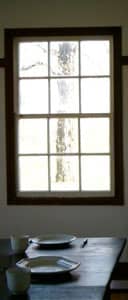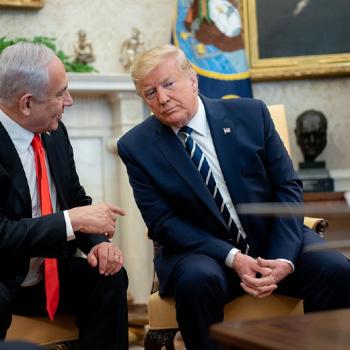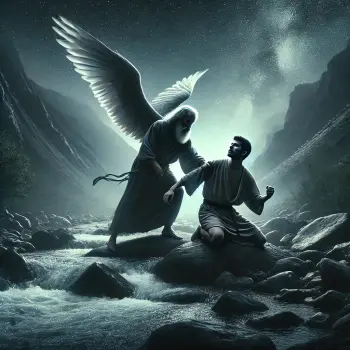Well, think about it: I was driving across the yellow lines, not following the lanes. But, we think of ourselves as the stars of our own dramas, so she was at fault, not me. Of course, a lot of this is brave talk! I've met some really scary strangers in my life, but 9 times out of 10 they're not as scary as I took them to be and a whole lot of them turn out to be helpers.
DAVID: You also write, "What we have most in common is not religion but humanity." So, how does that work out on a daily basis? How do you get past all the things that automatically separate us so we can get to our humanity underneath.
BARBARA: That's hard, especially when I'm engaged with a fellow Christian whose point of view is polar opposite from my own. I actually can feel my blood pressure go up! Or, if I'm talking with someone who's very sarcastic about my faith--that's hard!
What I try to do is go for something that we have in common: What's your favorite food? What do you do when you're not working? Where did you grow up? It's important for me to find some place where I can meet the other person--and they can meet me.
 That's my gimmick. I keep dropping down through category after category, allowing myself to be looked at by this person--and to look at this person until we finally find a base and we can begin to work upward again. That seems far better to me than just standing up on the 12th floor and shouting at each other about abstract concepts.
That's my gimmick. I keep dropping down through category after category, allowing myself to be looked at by this person--and to look at this person until we finally find a base and we can begin to work upward again. That seems far better to me than just standing up on the 12th floor and shouting at each other about abstract concepts.
This is especially important to me when I'm in other households of faith. When I visit, I don't start with theology. I start with foods and ways we celebrate and ways we grieve. Those are far better entry points in conversation than: What do you think about God? That's too big to start a conversation.
DAVID: You love the natural world. You write that one of your life's most important realizations is: "I do not have to choose between the Sermon on the Mount and the magnolia tree." In other words, God is in the Bible, God is in formal worship--but God also is in the natural world.
I wonder: We're so focused on the threats to nature, right now, are we in danger of missing out on actually appreciating nature's beauty?
BARBARA: I don't think this question is un-related to our conversation about the stranger a moment ago. There's this saying: We do not save what we do not love.
To save nature, we have to love and appreciate nature. The best way to stay engaged in the work of healing is to love what I'm engaged in healing in an ongoing way.
I tell you what: It's sometimes painful for me to love the river, because I look at what's floating down that river. I see the way people are destroying the river by what they throw into it--or maybe because they've just cut down all the trees along the river bank to get a better view of the water from their new home.
In situations like that, I can feel the river's pain! Am I starting to sound like a Druid? (laughter) But I mean it. I can feel the pain. I'm surrounded by what Native Americans call medicine--which is all the stuff around us in the natural world that is healing. That begs me to intervene in the healing of the natural world, as well. I don't think you can separate love of nature from caring about nature.
DAVID: I'm going to jump to another passage in your book that may seem jarring to some readers, but I was fascinated to learn that--in addition to all your other talents in life--your father taught you how to care for and carefully clean a rifle. You describe this as part of learning a "reverence in human life, paying attention, taking care, respecting things that can kill you, making the passage from fear to awe."
I'm struck by that image of Barbara Brown Taylor taking apart and cleaning a rifle--and this idea of respect for things that can kill us.
So, here's my question: In this new decade, what strikes you as demanding our respect because it can kill us? Where does this kind of awe take you now? What should we respect that can kill us?
BARBARA: I love that question so much that I just hate to try to answer it. The first thing that comes to mind is: I just want to sit and think about that question for the next hour. Maybe we should end the interview right here.
But, I'll try to respond. The first thing that comes to mind is the thing I'm most aware of--the ways in which my own patterns of living participate in the killing of other people and other creatures in Creation. There are some ways that people feel powerless about that. We can feel: My vote doesn't count. I don't have a voice. I can't get my book in print. Whatever the reason we give--so many people feel powerless.




